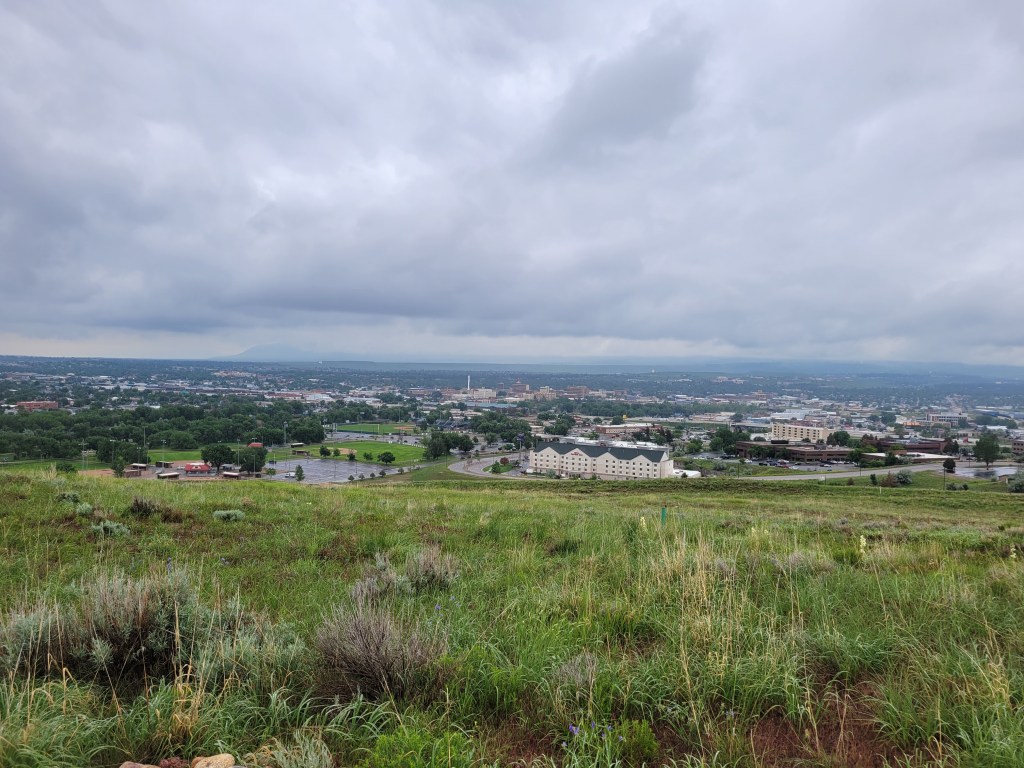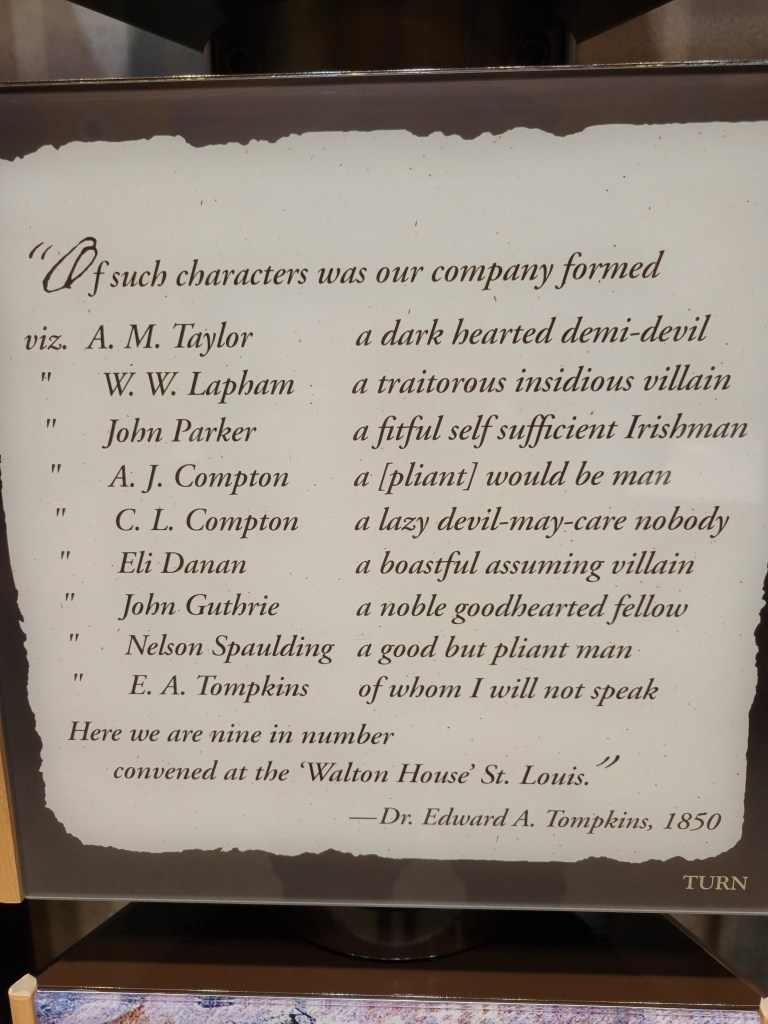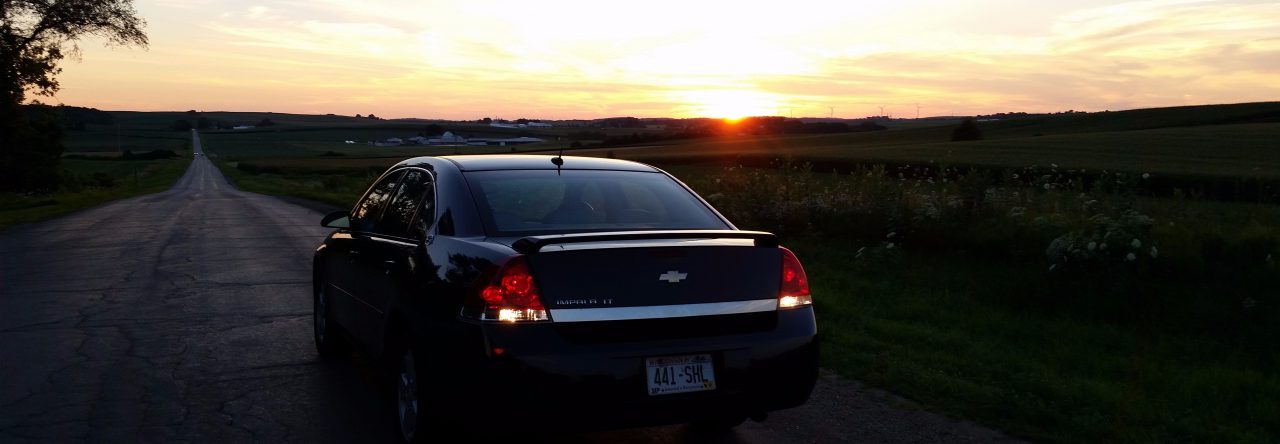I’ve seldom met a historical museum I didn’t like, so when numerous sources both personal and online suggested I check out Casper’s National Historic Trails Interpretive Center I was all game.

The Center pays homage to four different pioneer trails that crossed the American West in the mid-19th century: the Oregon Trail, the Mormon Trail, the California Trail, and the Pony Express. These emigrant movements may have involved different people, times, routes, and motivations but all of them passed through the area where Casper now stands (the Center also carves out some space for the Native tribes whose land was being trod over).

The Center is free (!) and sits atop a high hill overlooking downtown Casper. In addition to the usual museum artifacts, informational placards, and videos there are a few eye-grabbing life-size displays and even an interactive “ride” of sorts that lets you feel the rumble of a covered wagon as it crosses an imaginary river (it’s a bit cheesy, but so what? The place is free).


For my money, however, the most interesting compelling pieces in the Center are the numerous samples of written accounts from people who experienced the journey first-hand. Not too many visitors take the time to read through all of these texts but they really do a lot to bring the grueling drama to life.
Consider this sadly cinematic moment captured by a woman named Lucy Henderson Deady in 1846:
“At a meeting of the men of the wagon train it was decided to throw away every bit of surplus weight so that better speed could be made. A man named Smith had a wooden rolling pin that it was decided was useless and must be abandoned. I shall never forget how that big man stood there with tears streaming down his face as he said, ‘Do I have to throw this away? It was my mother’s. I remember she always used it to roll out here biscuits and they were awful good biscuits…’”
Damn.

The emigrants who embarked on these various trails gave up everything they had (including, in cases like Smith’s, their own memories) and endured months of hardship, exhaustion, sweat, disease, and sheer boredom on a scale I could never imagine. Throughout my time at the Interpretive Center I kept asking myself the same question: Why? What was so bad about their previous lives that they were willing to take on all this suffering for the vague promise of something better?
The reductive, hacky-but-kind-of-true answer is that they were chasing the American Dream. The concept of “life, liberty, and the pursuit of happiness” is baked into our national identity but these people had to essentially flee the United States in order to achieve it. The Mormons had to pack up and start their own rogue state in order to avoid religious persecution (never mind how wacky and oppressive some of their own beliefs were). Those who came to Oregon and California were mainly driven by the promise of economic reward (land and gold, respectively) that had been denied to them at home. Indeed, a great many American stories involve brave people going to absurd and dangerous lengths to get the things they’re already supposed to have.


It makes me feel vaguely guilty when I consider that the Oregon Trail migration could take up to 6 months whereas my whimsical car ride over a far greater distance will be completed in 4 weeks. I realize how trivial my complaints and fears really are, for even in the worst case scenario (a busted tire, a random bout with some illness or another) I’d almost certainly be bailed out by the amenities of modern civilization, institutions whose workings I have little knowledge of and have done nothing to contribute to.

But maybe there is something the pioneers and I have in common. We’re both passing through the same land, both enraptured by the unbridled beauty of the American West. I have to think that anybody that comes across this land can’t help but feel the same sense of reverence that I do, that it holds a power that will draw people (either temporarily or permanently) for centuries to come.

